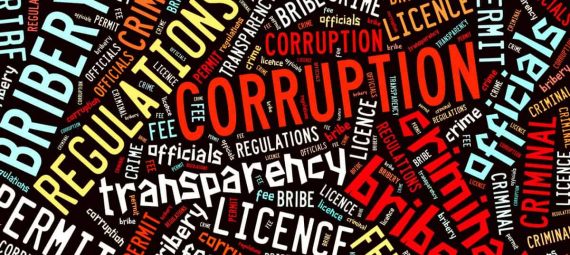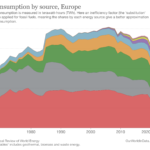Corruption in the United Kingdom
JOHANNES EBER
This article was originally written for the “Good morning Europe” blog (www.goodmorningeurope.substack.com) by Johannes Eber. We were given permission to publish this article on the European Liberals for Reform blog.

“How corrupt is Britain?” Politico Europe asked a few days ago.
So? Not very easy to answer. That’s only natural. How do you measure something that’s meant to be hidden? Judging by what the media likes to call a scandal, scandals are piling up in the Johnson administration.
Recently the administration tried to block sanctions against MP and former Cabinet minister Owen Paterson for a breach of parliament’s code on paid lobbying. Downing Street was forced into an embarrassing U-turn, and Paterson himself resigned as an MP after it became clear how badly ministers had misjudged the mood of the public and parliament.
“We end the week with our democracy not quite diminished, but certainly endangered by the gravity of these events. So where do we go from here?” Daniel Bruce, Chief Executive of Transparency International UK, wrote last week on the organisation’s blog.
The list of past incidents is quite long. Esther Webber and Emilio Casalicchio write in their piece “Is Britain corrupt?“:
“Among numerous unedifying episodes, the government has handed public sector jobs to political cronies; awarded COVID contracts to VIPs; allowed an ethics adviser to quit rather than accept his verdict of ministerial bullying; appointed a Conservative donor to the House of Lords against the advice of officials; and unlawfully fast-tracked a building project for a Conservative donor. Johnson himself has been at the center of several ethics inquiries, including over how a Caribbean island holiday was paid for; how he paid for his Downing Street flat refurb; and whether he misused his position as London mayor to benefit an American businesswoman with whom he had an affair.”
But what does it mean when many actual or supposed corruption scandals come to light? That the country is particularly corrupt? Or that, on the contrary, there is minor corruption because offences are covered up?
How do you add up these exposed scandals of the Johnson administration? Does the administration have a serious corruption problem?
I guess it depends on who you ask. Robert Barrington, a professor of anti-corruption practice at the University of Sussex, says at Politico:
“If you talk to corruption specialists, some would say, ‘yes, it’s already acting corruptly,’ and some would say it’s not quite. My personal view is it’s teetering on the edge.”
Let’s try objectivity and look at an index. According to the “Corruption Perceptions Index 2020”, the United Kingdom ranks 11 out of 180 countries.
Not that bad.
But even if that index is seen as the leading global indicator of public sector corruption, what does the index really say about corruption in a country? Since the index does not show how corrupt a state is but what people think about it. More precisely, the index scores and ranks countries based on how corrupt a country’s public sector is perceived to be by experts and business executives.
Obviously, the strength of the index depends on how precisely the observers can actually identify corruption.
So the outside view is a problem. Another problem: There may be different views of what corruption is.
A simple definition: Corruption is the abuse of entrusted power for private gain.
What sounds simple can take many forms.
Yuen Yuen Ang, a professor of political science at the University of Michigan, proposes four types of corruption that only partly have to do with pure money transfer:
- Petty theft (like a police officer who just stops you and robs you of $200)
- Grand theft (which is mainly embezzlement, like when in Nigeria billions of dollars siphoned out of a country)
- Speed money (which is bribes paid to low- or medium-level officials in order to overcome red tape or delays or harassment)
- Access money (which is privileges paid to powerful officials, not because you want to overcome red tape, but because you want to buy special deals from them)
Yuen Yuen Ang explained this distinction in a recent Freakonomics podcast.
That podcast is about the question of whether the USA is less corrupt than China? With Angs’s distinction the question of which of the two countries is more corrupt can no longer be answered that easily.
On the Transparency International corruption index, the USA ranks 25, with China 42.
The distance is quite large. But the view changes when you take a closer look.
“The common definition of corruption is the abuse of public power for private gain, and that definition usually excludes legal forms of influence politics. My definition would be broader than that. I would say that whenever there is so much power that one is able to influence or dictate the rules of the games, you begin to have the potential for corruption. And that is a grey line. In the context of countries like the United States, advanced capitalist democracies, it’s really hard to pin down what are the boundaries of having excessive political influence.”
Looking into the four categories helps in a way to measure these “grey lines”. Ang: “We can see more nuance, and we can see that first of all, in both countries, the United States is much lower on petty theft, grand theft and speed money than in China. But they have roughly the same amount of access money.”
This “access money” seems typical for western democracies. This is because lobbying is an institutional activity. Other than in China where power is often personalist.
Still, in total, corruption in the USA is much lower than in China.
That was not always so. Corruption in the USA, like in many western countries, was significantly higher in earlier times. It was mainly the Progressive Era – a period of widespread social activism and political reform across the United States of America that spanned the 1890s to World War I – that did succeed in making corruption riskier and more costly in the USA.
How?
Ang for the last time:
“An open press, muckraking journalism, independent prosecutors. Elections definitely played a key role, as well. There were electoral reforms to break up political machines, political activism, labour movements, and more. And this was all possible because of democracy.”
What does this mean for the United Kingdom in particular and Europe in general? At least that: Institutions matter.
Author Profile

-
Founder of the "Good morning Europe blog" and Pixel economist
Guest author for European Liberals for Reform
Johannes' articles are originally written for the “Good morning Europe” blog (www.goodmorningeurope.org) and the Pixel economist (https://thepixeleconomist.substack.com).
We were given permission to publish his articles on the European Liberals for Reform blog.
Latest entries
Post Disclaimer
The opinions expressed by the author of this post do not necessarily represent the opinions and policies of ELfR.




